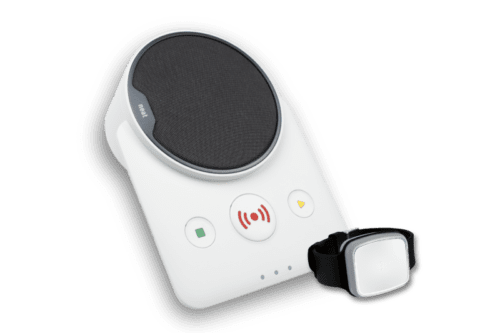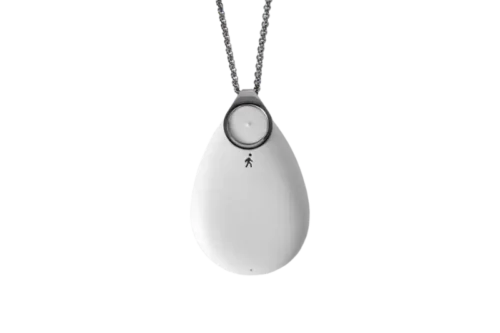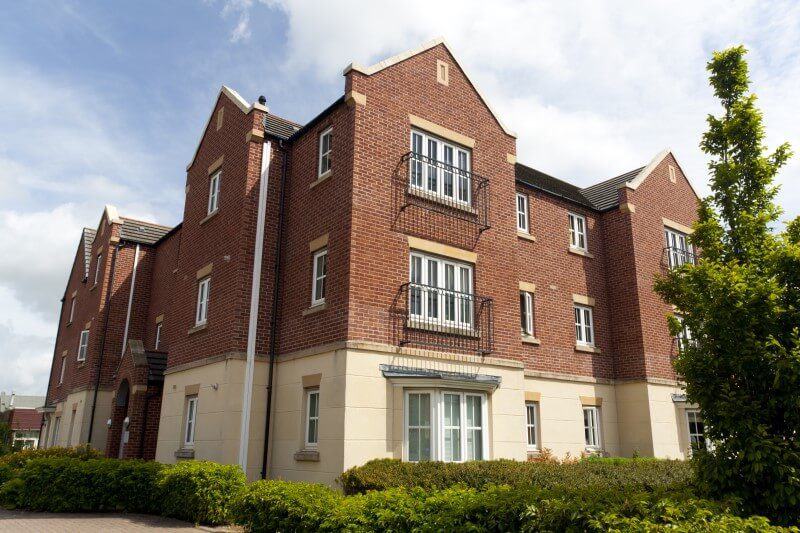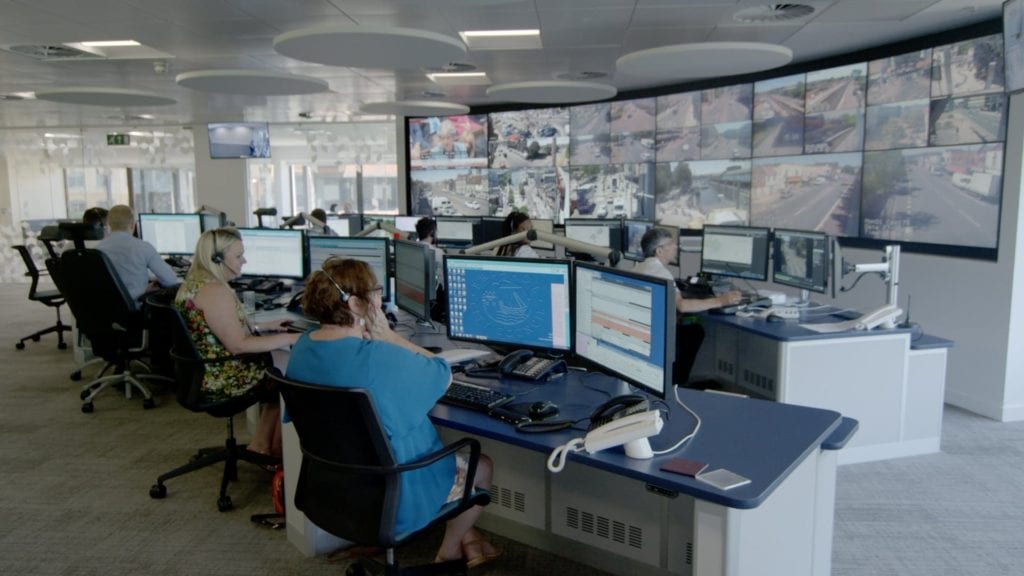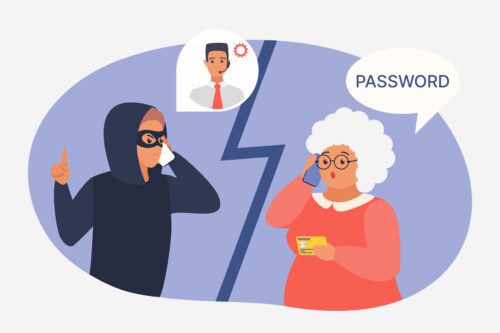Looking for more?
Find our dedicated page with the latest information on the digital switch for careline alarm users.
Take me there
A revolution has started. A digital revolution that is going to affect every home and every retirement scheme in the UK. It’s also a revolution that many stakeholders are unaware of. We are talking about a digital telephone switchover.
Digital switchovers have happened before in the UK and were seemingly advertised across the nation with much fanfare. Remember when we had to swap out our old analogue televisions to new digital-enabled equipment, the launch of Freeview and other multichannel platforms?
The same is about to happen with the BT network. The digital telephone switchover will create a network fit for today’s demands as well as create opportunities for new and exciting services in the future. You may not be aware, but the digital telephone switchover has already begun. Work started earlier this year, the question is, are you ready?
BT Announce Digital Telephone Switchover
Back in 2017, BT announced plans to switch off their analogue telephone network (PSTN) as well as their Integrated Services Digital Network (ISDN) by 2025. We were told the old network was no longer fit for purpose and that the telephone network needed to be brought in line with other countries such as France, Germany and Sweden to meet future demands.
Why the Need for a Digital Telephone Switchover?
The way we communicate has changed dramatically over the last decade. Initially, the old BT network was designed to just carry voice calls. The birth of the internet brought extra demands on the network to the point where homes and businesses now require ever faster speeds, rendering the current BT network woefully inefficient. Think of trying to make a Morris Minor perform like a Tesla Model S, it’s never going to happen, the result being a blown engine at best.
Digital Telephone Switchover Work is Underway
BT has been busy upgrading all the local exchanges, with their Single Order Generic Ethernet Access (SOGEA) now ready to go live across the country. Others such as Virgin are almost ready too.
The important aspect to bear in mind about the digital telephone switchover is that it’s a phased approach. Region by region, exchange by exchange. However, there is currently no published digital telephone switchover rollout schedule, the only way residents and businesses will know it’s happening is when a letter from BT drops on the mat.
Impact on Telecare Services
Change is good, change is a positive thing. The Telecare industry is very excited about the digital telephone switchover as it will result in services that are faster, more reliable and feature-rich.
However, there are some key points to bear in mind about the digital telephone switchover, whether you are an individual client user, part of a residents committee that has moved to Right to Manage Scheme or even a housing provider.
This is because when it’s your regions turn to be upgraded, it will have a real impact on your telecare service, so it’s vital to be prepared.
Emergency calls will be delivered to an alarm response centre “digitally”, rather than via the old analogue method. This means existing equipment will need to be upgraded or changed completely.
The Digital Telephone Switchover – Impact on Residential Telecare Users
When a region has gone through the digital telephone switchover process, BT and other providers will provide a Home Hub that will become equipped with an ATA (Analogue Telephone Adapter).
An ATA is designed so that you can plug your existing equipment, whether that’s a phone or a careline alarm into the back of the hub and it can continue to be used as before if even it’s analogue.
The ATA will be a temporary measure and residential telecare users will likely have to upgrade their equipment to IP enabled alarms in the future.
Manufacturers such as Doro, Tynetec, Tunstall and Neat are already producing IP enabled alarms, so this should not cause too much of a problem, albeit they are far more expensive than the current analogue units. This may well force careline providers to increase their subscription fees.
Additionally, one of the main impacts of digital lines is the lack of power. For instance, currently with the analogue network, if there is a power cut your telephone line is generally unaffected, your personal alarm will have a battery backup and you can make an emergency call if needed.
With digital lines, all calls will go through the Home Hub, which is connected to the mains power. If there is no power, it will not work. Even if your personal alarm has a battery backup, this would be rendered useless as it will be connected to the Home Hub – that has no power due to the power cut.
At the time of writing, BT has promised to provide “vulnerable” residents with a battery backup that can be used in the event of a power cut. However, it will only provide power for 1 hour of usage. Virgin has promised the same, although they have stated that their battery back system will only allow residents to call 999, again rendering your personal alarm redundant during the power cut.
The Digital Telephone Switchover – Impact on Retirement Developments
Every town in the UK has specially designed retirement properties. Whether that’s social housing stock, charitable properties such an Almshouse scheme or part of a privately-owned development, most have integrated warden call telecare systems.
For many schemes, the original warden call system that was installed during construction is still in place. With many schemes now 30 years older or more, many warden call systems are now at the end of their lifecycle and not fit for purpose.
To make matters worse, the digital telephone switchover may render older analogue systems useless. The rule of thumb is that any integrated warden call system that’s older than 10 years old will likely need to be replaced with a digitally enabled warden call system.
Digital Telephone Switchover Action Plan
Retirement developments right across the UK need to plan now to prevent any potential loss of service and begin the process of deciding what should replace the current warden call system. Waiting until BT send notification of the digital telephone switchover happening in your area will be too late. Remember, BT aims to have this work “completed” by 2025 at the latest.
Here are some key action points to consider putting into action as soon as possible:
1. If you are part of a residents committee, a manager of a scheme or are responsible for several retirement schemes, start to develop a digital strategy.
2. Compile a full assessment of the systems you have, which should include the number of residents, the make and model of the system installed and any other pertinent information.
3. Find out what the situation is regarding your current warden call contract, both for maintenance and for the careline call provision. Make enquiries with your current providers as to what their plans are for the Digital Telephone Switchover.
4. Notify BT as soon as possible that you have vulnerable adults in residence. This will ensure BT will provide further support during the digital telephone switchover in your area.
Digital Telephone Switchover Health Check
Telecare24 can provide advice to those responsible for warden call systems in retirement developments. This includes Residents Committees, Managing Agents or Housing Providers.
We can provide a free digital audit and give you impartial advice as to being prepared to take your retirement scheme digital. To book a health check call us on 0800 180 80 95 or email us at support@telecare24.co.uk
Looking for more?
Find our dedicated page with the latest information on the digital switch for careline alarm users.
Take me there

